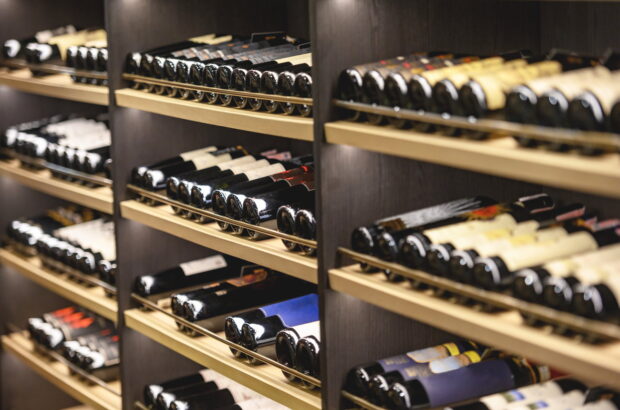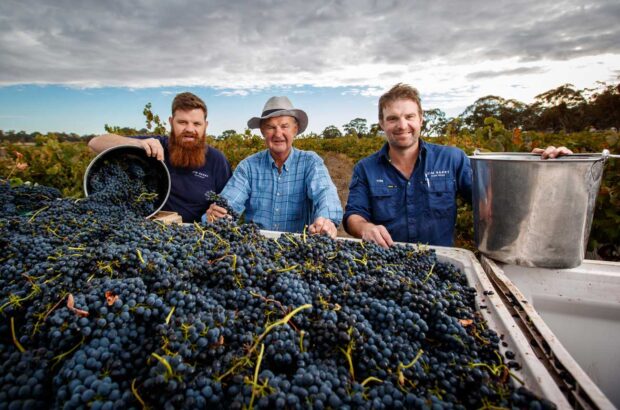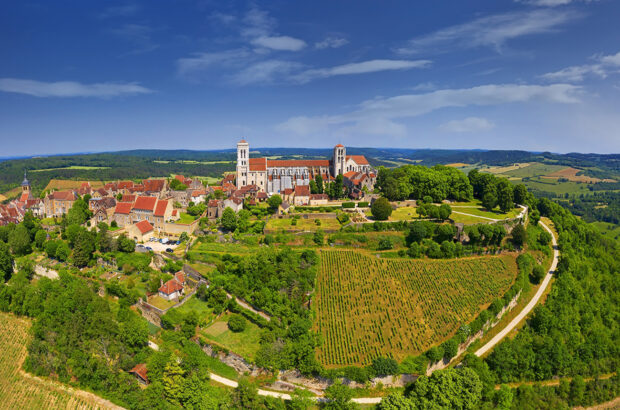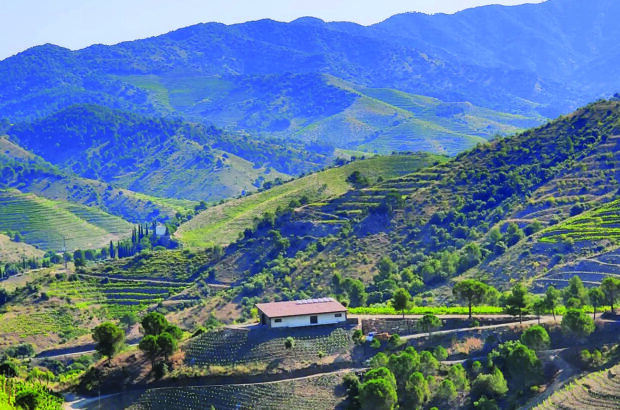Over its 37-year history, the Decanter Hall of Fame award has recognised many legendary figures in the world of wine, often marking the pinnacle of a long and impressive career. But where are future Hall of Fame recipients going to come from? This year, for the first time, we try to answer that question, highlighting an up-and-coming talent.
So welcome to this year’s Rising Star award, and congratulations to its first recipient, Dr Axel Marchal. He may well be unfamiliar even to many who love the wines of Bordeaux, where he is based. And yet, at 37, he has already had a major impact on the wines of the region and beyond.
His dedication to the analysis of wine using groundbreaking science, his passion and aptitude for teaching the winemakers of tomorrow and his tasting skills as well as his intuitive winemaking and consultancy put him in a unique position among wine professionals. He is already a Doctor of Oenology, a full professor at Bordeaux University’s Institute of Vine and Wine Sciences (ISVV) and a consultant to 24 estates across France, and one in Italy, taking over from his mentor and hero, the late French winemaker and professor of oenology Denis Durbordieu.
‘Denis thought very highly of Axel, who was clearly one of his brightest students,’ says Philippe Castéja, winemaker, merchant and CEO of the Castéja family business, which owns 10 Bordeaux estates including Château Batailley in Pauillac and Château Trotte Vieille in St-Emilion, both of which Marchal consults for. ‘Beyond his tremendous knowledge, Axel has a great palate, which is so important for blending. He is the new winemaker generation,’ Castéja adds.
A passion for wine guided Marchal’s formative years, visiting wineries across the country with his parents and requesting bottles for his birthday, but he never considered it a career, opting instead for a place at the Ecole Normale Supérieure of Paris (ENS), one of France’s top universities, with the highest proportion of Nobel laureates of any institution worldwide – including another of his heroes, chemist and microbiologist Louis Pasteur.

Inside the ISVV – Bordeaux’s Science Institute of Vine and Wine
Despite not formally pursuing oenology, during Marchal’s time in Paris he became head of the school’s tasting club and a member of the service team at insiders’ wine school/cellar club Grains Nobles, which welcomed some of the world’s greatest winemakers – Aubert de Villaine of Domaine de la Romanée Conti and Alexandre de Lur Saluces of Château Yquem, to name but two.
After his degree, Marchal won an internship with Nobel prize-winning chemist Jean-Marie Lehn, whom he already admired, in Strasbourg, and had an open offer to complete his PhD there.
But Marchal decided to spend a year in Bordeaux first, at Château Latour, which led to a ‘life-changing’ meeting with Denis Durboudieu – ‘wine’s most famous scientist’, according to Stephen Brook, and also Decanter’s Hall of Fame recipient in 2016. ‘Denis opened my eyes,’ Marchal recalls with affection. ‘I discovered it was possible to combine my love of wine with my interest in chemistry and science more generally.’ Marchal passed on the Strasbourg offer, instead embarking on a PhD on the sweetness in dry white wines, under Durboudieu’s supervision in Bordeaux.
‘Working with Denis was amazing – everything I know today to do with wine science, I learned from him,’ says Marchal. ‘He had a great knowledge and understanding of wine, but also an intuition for interesting topics. His classes were fascinating.’
Marchal began working with wineries as a consultant during his studies with Durboudieu, acompanying two former students who became associates of Dubourdieu, Valérie Lavigne and Christophe Ollivier, with whom he still works today. The first project began in 2016, the same year Durboudieu sadly passed away.
Believing ‘the aim of the winemaker is to reveal the originality of the place’, Marchal attempts to help his clients do just that. ‘It may not be the best wine in the world, but it is one that has the particular taste you associate with the place,’ he says. ‘My research then helps me understand why it might have that taste – it’s a circle.
‘The key point,’ Marchal continues, ‘is to have an overall view of wine. Mine is more associated with science, because I like to understand things, but you can approach it based only on empiricism – that is also very interesting.’
However, when asked how he would like to be perceived, he says: ‘Not as a little chemist of wine – that’s not my view. I’m just a guy interested in understanding things, in order to act more wisely.’ He would prefer simply, and above all, to be viewed as ‘a wine lover’.
‘If someone had told me when I was younger this is what I’d be doing now, I would have said “it’s not possible”. I dreamed about having the opportunity to work with wineries like HautBailly and Yquem – every time I go there, I have stars in my eyes,’ he says humbly.

Inside the new barrel room at Château Haut-Bailly
Looking forward to ‘more discoveries’ in the future, Marchal hopes for a long teaching career and to make wines ‘with personality’. He is preparing for the 2021 harvest with clients spread across Bordeaux.
‘To me, in the future,’ says Castéja, ‘Axel will be the top winemaker in the world, because he has the knowledge, plus this extraordinary palate. And on top of that he is a very open and approachable man.’
Wines of my life: Marchal’s meaningful five
Outstanding wines, chosen by Dr Axel Marchal: ‘Beyond their quality, they are associated with producers or moments that are special to me.’

Coche-Dury, Corton-Charlemagne Grand Cru, Burgundy 1996: I remember the first time I tasted this from barrel – I was amazed by its intensity, something which later guided me for my research on Chardonnay wine aromas.
Pierre Morey, Bâtard-Montrachet Grand Cru, Burgundy 1985: I learned a lot during an internship at this estate and I am still close to the Morey family. This wine is a beautiful illustration of how great white Burgundies are able to age while their personality also grows.
Château Léoville Las Cases, St-Julien 2GCC, Bordeaux 1986: This wine symbolises the class and unique ageability of great Médoc wines.
GB Burlotto, Monvigliero, Barolo, Piedmont 2013: This was drunk too young, but it already had an astonishing intensity and purity.
Château Doisy Daëne, Barsac 2CC, Bordeaux 1947: In tribute to Denis Dubourdieu and his family, but also in memory of tasting it with my father, who was a great fan of Sauternes wines












